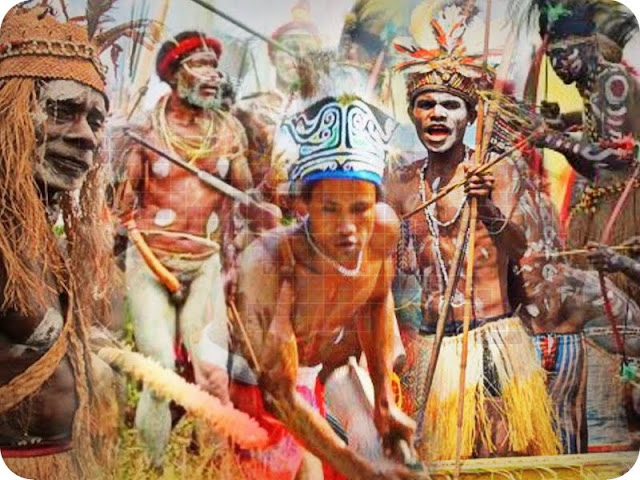
The Shiro Copr, KAIMANA - The Language Agency, Papua holds a technical guidance (Bimtek) for main teachers of the revitalization of the Mairasi language in Kaimana, West Papua, Wednesday (06/18/2025).
The Bimtek, officially opened by the Deputy Regent (Wabup) of Kaimana, Isak Waryensi, was held at the Grand Papua Hotel for the next two days.
The Head of the Language and Literature Modernization and Protection Team, Antonuis Maturbongs, M. Pd said that the Main Teacher Bimtek on Revitalization of the Mairasi Language is aimed at implementing the protection of Local Languages in Papua.
It is said that the protection of local languages including literature is a shared responsibility.
In addition to the community of owners of language and literature itself, the government must also be present in this protection effort, as has been regulated in Law of the Republic of Indonesia Number 24 Year 2009 (Law RI No. 24/2009) and Government Regulation Number 57 Year 2014 (Government Regulation No. 57/2014).
"The content of Law Number 24/2009 and Government Regulation 57/2014 is very significant in nation-building and state life. Its significance lies in the content of these regulations which affirm the position of language as a symbol and means of unity, identity, and manifestation of the existence of a nation," he explained.
From various efforts to protect local languages, Antonius said that the revitalization program for local languages is a strategic stage.
The revitalization of regional languages, driven by the Ministry of Basic and Secondary Education, is one of the language protection programs aimed at rekindling the use of regional languages in various aspects of daily life and increasing the number of young speakers of regional languages.
"Local culture is a culture that grows and develops within the community of a particular region. Generally, local culture is the original culture that has long existed and is passed down from generation to generation," he said.
Regional languages and literature have now become an important part of the Special Autonomy era in Papua. This is a logical consequence of the recognition of regional rights, including the recognition and respect for regional languages and literature.
"The Papua region has the most languages, literature, and ethnic groups in our country. There are 248 ethnic groups in Papua and seven customary regions, namely Mamta, Saireri, Domberai, Bomberai, Ha-Anim, La-Pago, and Mi-Pago. Each of these ethnic groups and ethnic clusters have their own culture, including their own languages and literatures," he said.
According to data from the Language Development and Development Agency, the number of regional languages in Indonesia is approximately 718, of which 428 are in Papua.
The Special Autonomy Law for Papua No. 21 of 2001, Article XVI on Education and Culture, emerged as a guarantee against the growing concern of the extinction of local languages.
"The Local Government will nurture, develop, and preserve the diversity of local languages and literature in order to maintain and strengthen the identity of the people of Papua," he emphasized.
The hope is that the revitalization of the Mairasi language will reveal the Indonesian identity once again through language and literature, not only in Kaimana Regency, but throughout the corners of the country.
"May this activity become a means and important element to promote development in the fields of education and culture, and become part of the cultural strategy to advance the nation, as well as becoming our shared pride in the past, present, and future through the Revitalization of the Mairasi Language," he concluded.
The Deputy Regent of Kaimana, Isak Waryensi, who is a native child of the Mairasi Tribe, highly appreciated what was done by the Papua Language Office.
"Praise God this is incredibly amazing, I am a native child of Mairasi and a native child of Kaimana, I am very proud," explained the Deputy Mayor when opening the Bimtek.
The Vice Regent said that the local language is an important part of the identity as indigenous people of Papua.
Because it reflects history, traditions, and values that have been passed down from generation to generation by preserving local languages.
"This ensures that our culture remains alive and connected to the past. Local languages are also a window to the world of local wisdom. Sometimes, in local languages, there is knowledge about the environment, plants, strengths, and sustainable ways of life," said Deputy Regent Isak Waryensi.
The Vice Regent also said that the current generation must take responsibility to understand and preserve this knowledge so it does not become extinct.
"So this language we must maintain, not just regional language but all languages," asserted the Deputy Regent.
Also present in the Bimtek were the Secretary of the Kaimana Education Department, Yulius Nanay, the Chairman of the Kaimana Customary Council, Lewy Oruw, and a number of teachers from school representatives in Kaimana.
(*)
Comments
Post a Comment